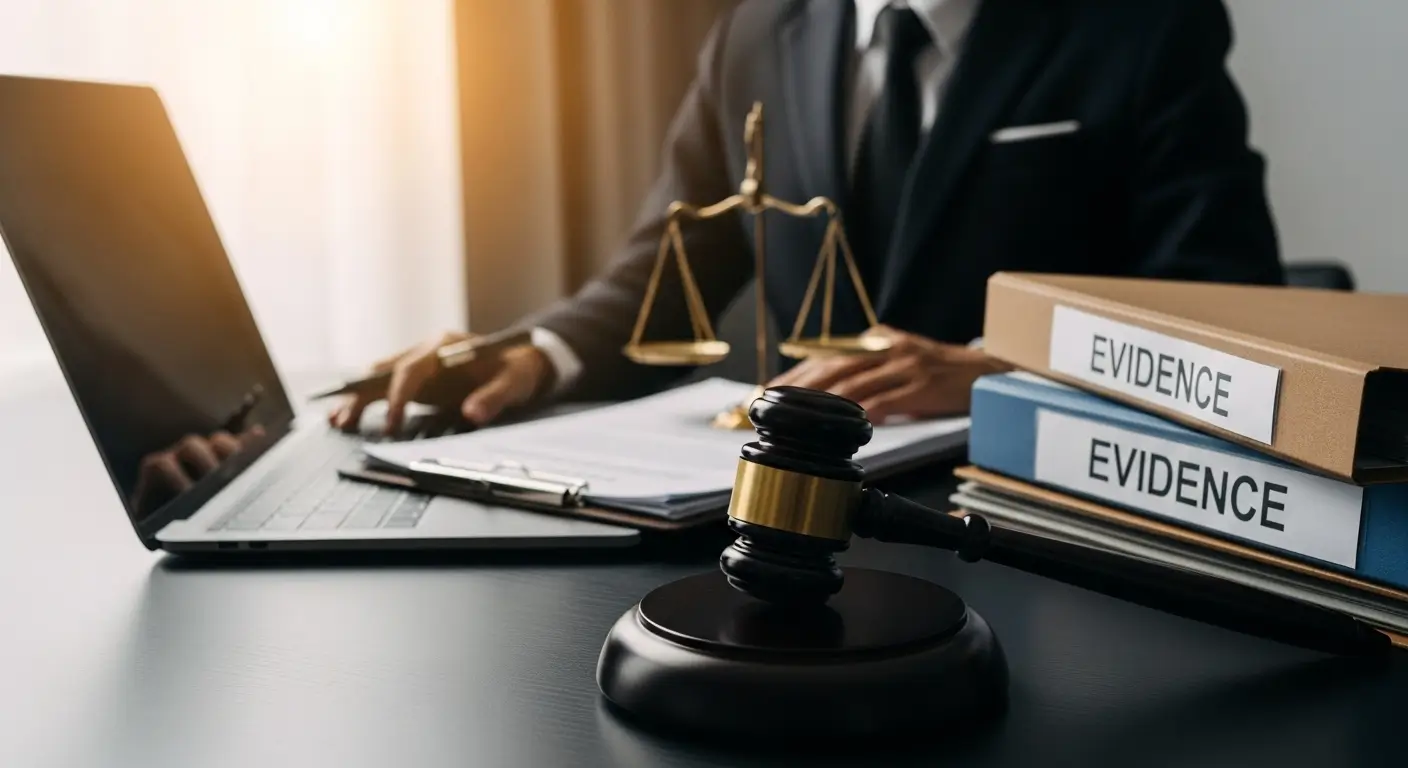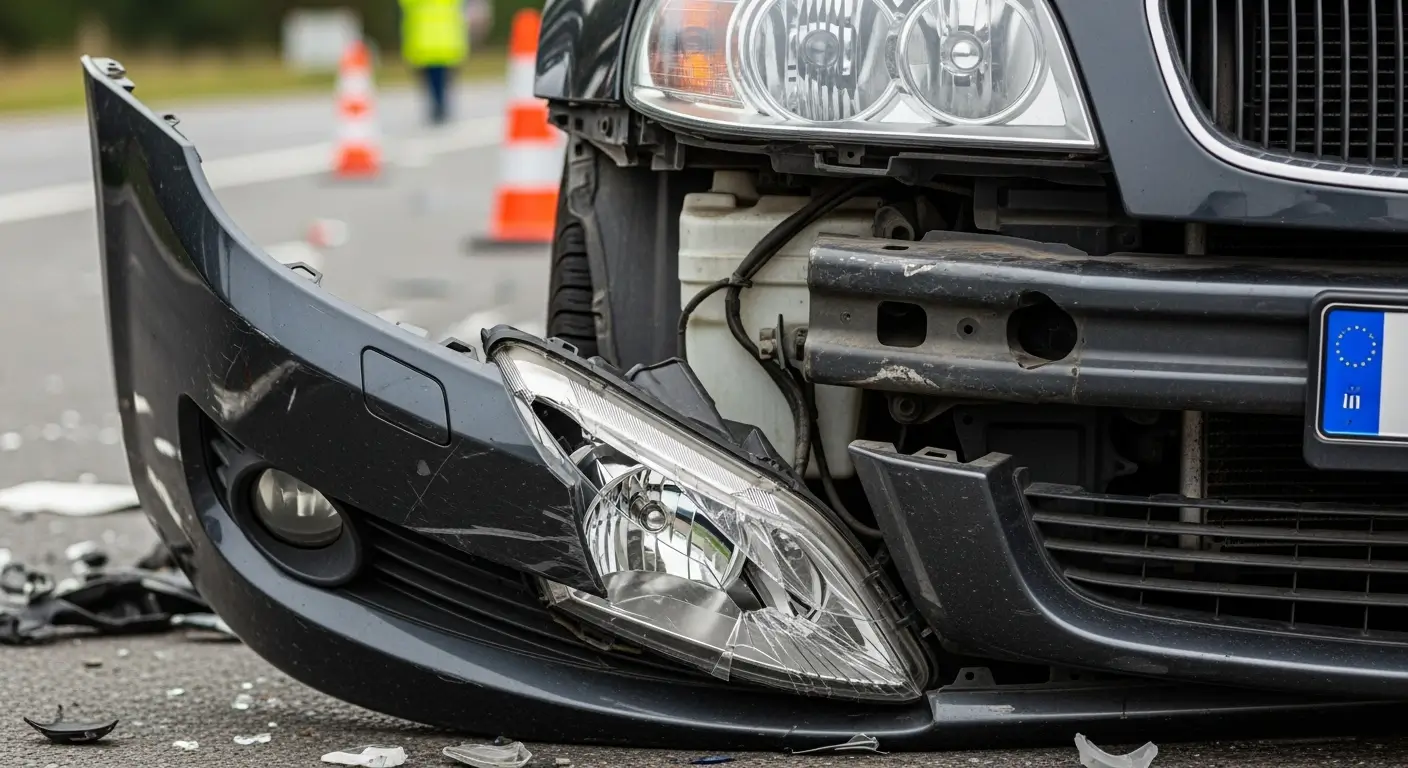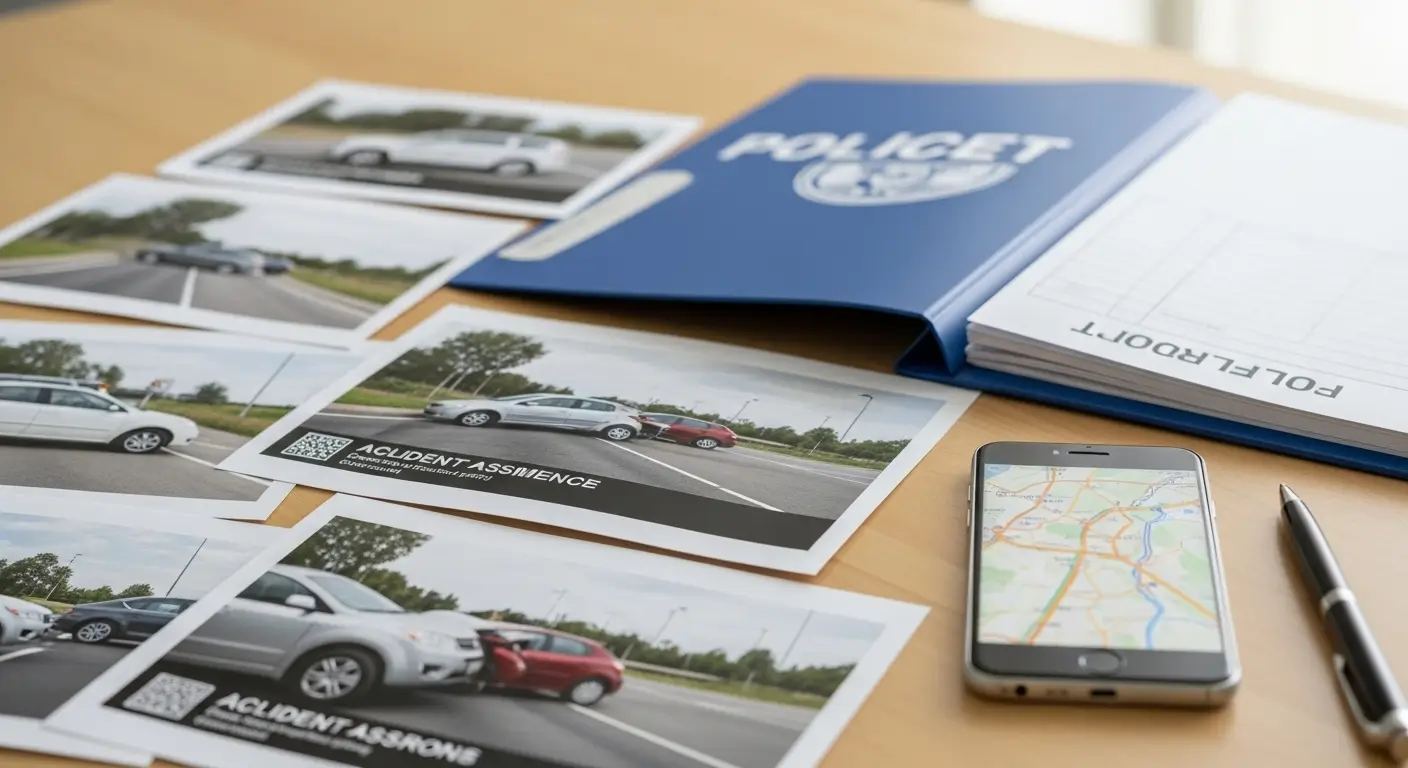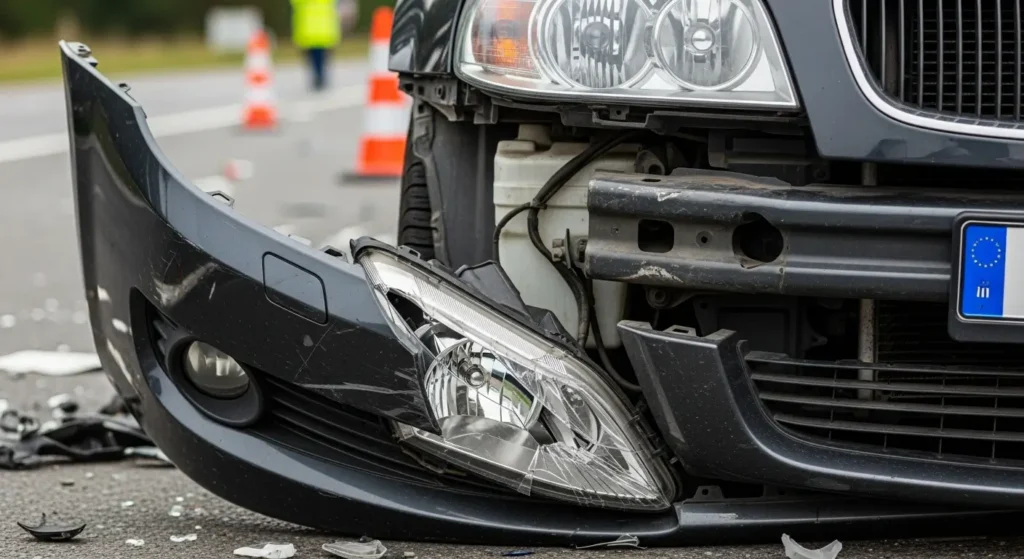Evidence is the key to any successful car accident claim. You need proof of liability for the accident and damages to succeed when dealing with an insurance company. However, you may face difficulties gathering the required evidence to receive full compensation for your injuries. Not only are you dealing with physical injuries and diminished capacities, but you may also not know how to conduct your car accident investigation. Accordingly, you should not try to document your car accident on your own, no matter how many step-by-step guides you may see on the internet.
The best thing you can do for your legal case is to hire a car accident lawyer as soon as possible. Even though you are recovering from injuries, you cannot afford to take your eye off the legal process. A car accident attorney can investigate your accident as soon as you hire them, and you do not have to worry about doing anything on your own. If you cannot make the call to a car accident lawyer on your own, you should have a trusted friend or family member do it on your behalf. The important thing is that you get a car accident attorney working for you immediately.
An experienced attorney knows the importance of gathering and preserving evidence to support your claims. They will obtain key evidence such as photographs, witness statements, and police reports, and help analyze the information to build a strong case on your behalf.
Thus, you should not worry as much about how to document the evidence as you should about finding someone who can do it for you. When you understand how complicated the process is to document evidence, you will realize the importance of hiring a car accident attorney to represent you as you seek compensation.

The Role of Negligence in a Car Accident Case
Negligence plays a central role in most car accident cases. To successfully recover compensation after a crash, you generally must prove that the other driver was negligent and failed to exercise reasonable care on the road, causing the accident and your resulting injuries.
Negligence means that the at-fault driver breached their duty to act safely. These behaviors include speeding, running a red light, texting while driving, driving under the influence, failing to yield, or distracted driving. Essentially, negligence involves any careless or reckless action that falls below the standard of how a reasonable person would drive.
In a car accident case, establishing negligence involves demonstrating four key elements:
- Duty: The driver owed a duty to others on the road to drive safely.
- Breach: The driver breached that duty through unsafe or careless conduct.
- Causation: The breach directly caused the accident.
- Damages: You suffered actual injuries or losses as a result.
Since you are the one who is seeking money, you have the legal obligation to carry your burden of proof. In any personal injury case, you must show that the driver was at fault by a preponderance of the evidence. You have an affirmative legal obligation to prove the above elements by presenting proof to the insurance company or a jury. You cannot receive compensation for your injuries if you fail to demonstrate any of the aspects.
Proving negligence is critical because it establishes liability. You generally cannot recover damages without showing that the other driver was negligent. Evidence such as police reports, witness statements, traffic camera footage, and expert testimony often helps build a strong negligence claim in a car accident case.
What Evidence Do You Need After a Car Accident?

After a car accident, collecting the right types of evidence is vital to support your claim and protect your legal rights. Substantial evidence can help establish fault, prove the extent of your injuries, and prevent the insurance company from minimizing or denying your claim.
One of the most critical pieces of evidence is photographic documentation. Take pictures of the damage to all vehicles, the accident scene, road conditions, traffic signs, skid marks, and any visible injuries. These images help recreate what happened and can support your version of events.
Police reports are also essential. They provide an official account of the crash, including the officer’s observations, witness statements, and whether any citations were issued. This document can carry significant weight with insurance adjusters and in court.
Gather contact information for witnesses, as their independent accounts can help clarify how the accident occurred. Eyewitness testimony can be instrumental if the other driver disputes fault.
Medical records are critical in proving the nature and extent of your injuries. Be sure to seek treatment immediately and follow through with all recommended care. These records help link your injuries directly to the accident.
If available, dash cam or surveillance footage can offer real-time, unbiased evidence of the crash. Your attorney may also secure electronic data from the vehicles, such as black box information.
Collecting this evidence early and thoroughly can significantly strengthen your claim and improve your chances of receiving fair compensation.
The Challenges of Documenting Evidence After a Car Accident
Documenting evidence after a car accident is one of the most important steps you can take to protect your legal rights, but it is not always easy. You may see long lists of what you must do at the accident scene to document the crash, but it is easier said than done. In the immediate aftermath of a crash, you may be in shock, injured, or overwhelmed, making it difficult to focus on collecting information. You may receive medical treatment at the scene for your injuries, which will distract you. Ultimately, you may not have the capacity to begin to document the accident at the scene. Yet the evidence from the scene often plays a critical role in determining fault and securing fair compensation.
One major challenge is the time-sensitive nature of physical evidence. Skid marks, vehicle positions, debris, and weather conditions can all change quickly or disappear entirely. If emergency responders or tow trucks arrive before you can take photos, you can lose valuable details. Likewise, authorities may remove or repair damaged vehicles before you can gather vital evidence.
Another issue is obtaining accurate witness statements. Witnesses may leave the scene before police arrive, or their memories may fade. Without prompt interviews or contact information, it can be challenging to track them down later.
Gathering official records can also be time-consuming. Police reports may take days or weeks to become available, and requesting traffic cameras or surveillance footage must often be done quickly before anyone overwrites the data.
Additionally, injuries may not be immediately apparent, making it hard to document their impact immediately. Soft tissue damage, internal injuries, or emotional trauma may surface days after the accident, complicating the timeline of medical documentation.
The Importance of Hiring a Car Accident Lawyer to Document the Crash

Hiring a car accident lawyer as soon as possible after a crash is one of the most important steps you can take to protect your rights and strengthen your claim. One of the key roles your attorney plays is properly documenting the accident. While it might seem like the police report and your photos are enough, professional legal documentation goes much deeper and can make or break your case.
A skilled car accident lawyer knows exactly what evidence to collect and how to preserve it. They will gather police reports, request surveillance or traffic camera footage, obtain black box data from the vehicles, and secure statements from eyewitnesses while their memories are still fresh. In some cases, they may bring in accident reconstruction experts to analyze the crash scene and provide testimony on how the collision occurred.
An attorney will also ensure that your medical records accurately reflect the injuries you suffered in the crash. They understand how insurance companies scrutinize claims and will work to build a complete and well-supported file showing the accident’s impact on your health, finances, and daily life.
Importantly, your lawyer can act quickly to prevent the loss of important evidence. Time is critical; photos fade, people repair their vehicles, and camera footage disappears within days. Without timely documentation, proving fault and damages becomes significantly harder.
Ultimately, hiring a car accident lawyer ensures that someone thoroughly and professionally documents your crash from the start. These records strengthen your position during settlement negotiations and prepare your case for court if litigation becomes necessary. Legal representation gives you the best chance of recovering full compensation for your injuries and losses.
You Need Evidence to Protect Yourself from Allegations About Your Conduct After a Car Accident
After a car accident, the evidence you gather can be just as important for defending yourself as it is for proving the other party’s fault. In many cases, insurance companies or the other driver may try to shift the blame onto you. Without solid evidence to support your version of events, you may face allegations that reduce or eliminate your ability to recover compensation or expose you to liability.
One of the most common allegations is that you were driving recklessly, distracted, or under the influence at the time of the crash. These claims can be damaging, especially if there is little to no evidence to refute them. That’s why it is critical to gather and preserve evidence from the time the accident occurs. Photos of the scene, vehicle damage, traffic signs, and road conditions can help reconstruct what happened. Likewise, statements from neutral eyewitnesses can offer valuable third-party perspectives that support your account.
In more complex cases, dash cam footage or nearby surveillance video can be critical in clearing your name. These recordings often provide unbiased, real-time evidence that can contradict false claims. Additionally, medical records can show the timing and severity of injuries, which may help disprove accusations of exaggeration or malingering.
Hiring a car accident attorney early is essential. Your lawyer will take steps to secure evidence quickly, such as sending preservation letters to request footage or cell phone data before anyone deletes it. They can also ensure you carefully craft your statements to insurance adjusters to avoid misunderstandings or misinterpretations.
In short, evidence does not just help you build a case—it protects you from unwarranted allegations. Taking proactive steps to document the crash and preserve key details can mean the difference between a denied claim and full financial recovery.
You Need to Hire a Car Accident Attorney Right After the Crash
Car accident evidence is only available to you for a limited time, and you lose quite a bit of proof when the authorities clear the accident scene. Even though you may have needed this evidence to prove your case, you will still need to come in after the fact and reconstruct what happened. That task is not always an easy one.
Thus, you should hire a car accident attorney as soon as you can after the accident. If you wait weeks or months, it will be far more difficult for a car accident lawyer to gather the proof you need to win your case. Delaying getting legal help for too long can make it more difficult to find a car accident lawyer who will accept your case. They work for you on a contingency basis, and a car accident attorney may not want to take a case that is too difficult to prove.
Getting the full amount of money you deserve may take considerable time, so you want to at least begin the legal process by hiring a car accident attorney. You only need to make a phone call and speak to a car accident attorney during a free initial consultation. At that point, you can decide whether the attorney is the right person you can trust to fight for you in the face of the insurance company’s natural resistance to a claim.
Remember, when dealing with the aftermath of a car accident, having a dedicated attorney by your side can make a world of difference. They will be your advocate, legal advisor, and ally in seeking justice and compensation for the harm you have suffered. Do not hesitate to contact a trusted attorney to guide you through this challenging time.
